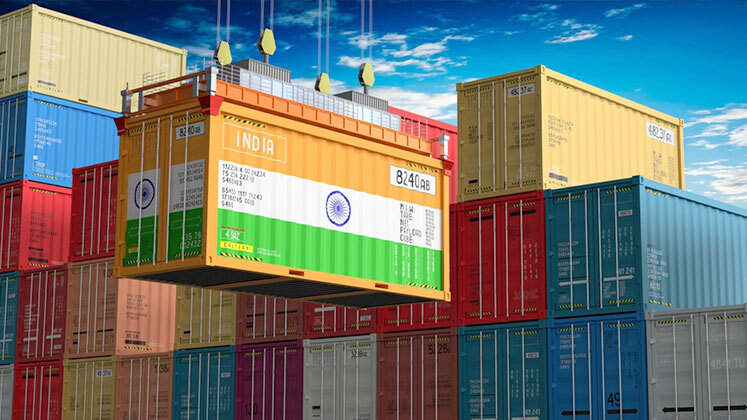The Union Cabinet Committee has approved a six-year Export Promotion Mission (EPM) with an outlay of Rs. 25,060 crore (US $ 2.82 billion), including a Rs. 20,000 crore (US $ 2.25 billion) allocation for expanding the Credit Guarantee Scheme for Exporters.
Under the mission, the government will prioritise support for sectors affected by recent global tariff escalations, which includes the textile industry. The interventions are designed to help sustain export orders, protect employment and promote diversification into new markets.
Originally announced in the Union Budget 2025–26, the EPM aims to strengthen India’s export competitiveness, particularly for MSMEs, first-time exporters and labour-intensive industries. Spanning FY 2025–26 to FY 2030–31, the mission will provide a comprehensive, flexible and digitally driven framework for export promotion.
The mission consolidates key export support programmes such as the Interest Equalisation Scheme (IES) and Market Access Initiative (MAI), aligning them with contemporary trade needs. Its framework was finalised through collaboration between several government bodies, including the Department of Commerce, Ministry of MSME, Ministry of Finance, financial institutions, export promotion councils, commodity boards, industry associations and state governments.
Union Minister Ashwini Vaishnaw stated that the EPM will function through two integrated sub-schemes: Niryat Protsahan and Niryat Disha. Niryat Protsahan will enhance MSME access to affordable trade finance via tools such as interest subvention, export factoring, collateral guarantees, e-commerce export credit cards and credit enhancement for market diversification. Niryat Disha will focus on non-financial enablers that improve market readiness, including export quality and compliance support, international branding and packaging assistance, trade fair participation, export warehousing and logistics, inland transport reimbursements and trade intelligence initiatives.
Implemented by the Directorate General of Foreign Trade (DGFT), the mission is expected to facilitate trade finance for MSMEs, strengthen export readiness through compliance support, improve global market access for Indian products, boost exports from non-traditional districts and generate employment across manufacturing, logistics and allied services. It seeks to address structural challenges in the export ecosystem such as limited access to affordable finance, high compliance costs, weak branding, fragmented market linkages and logistical constraints in low-export-intensity regions.
The Cabinet, chaired by Prime Minister Narendra Modi, also approved the Credit Guarantee Scheme for Exporters (CGSE), which will provide 100% credit guarantee coverage through the National Credit Guarantee Trustee Company Limited (NCGTC) to Member Lending Institutions (MLIs). The scheme will enable up to Rs. 20,000 crore (US $ 2.25 billion) in additional collateral-free credit to eligible exporters, including MSMEs.
The Confederation of Indian Textile Industry (CITI) welcomed the Cabinet’s approval, noting that the mission would provide a major boost to the textile and apparel sector. CITI Chairman Ashwin Chandran expressed gratitude to the Prime Minister and the Cabinet, observing that the initiative would enable the industry to become globally competitive, capitalise on opportunities arising from free trade agreements, diversify into new markets and create high-quality employment opportunities for India’s youth.
Chandran also remarked that the EPM would help resolve structural challenges faced by India’s textile and apparel MSMEs, many of which struggle to access affordable finance. He noted that MSMEs constitute the bulk of India’s textile and apparel industry, making the mission a timely and transformative intervention.







